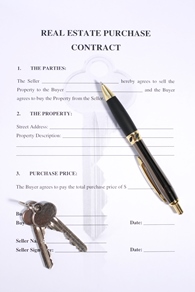The real estate market is extremely volatile these days, leading to an increase in real property purchase and sale contracts gone awry. If you are a buyer with an actual contract to purchase real estate and stand able, ready and willing to close / purchase, but the seller breaches the contract and fails to sell you the property, what are your remedies, your options? NC law has surprisingly little to say about this, but this writer can share some information which should be of use.
Of course, every situation is unique, this is not legal advice, and this is not intended to cover every situation or to be a comprehensive thesis on the topic. I recommend you consult a qualified contract lawyer NC if you are faced with this or a similar scenario. That being said, NC law typically allows a wronged would-be buyer 3 options if there is a real estate purchase contract which the seller breaches; I will list them and then translate them:
1) The would-be buyer may sue at law for the damages suffered.
2) The would-be buyer may sue in equity and seek specific performance.
3) The would-be buyer may rescind the contract and recover what (s)he has paid.
The would-be buyer may sue at law for the damages suffered. If you can prove that the seller wrongfully breached by not selling to you and that this failure cost you money, you may be able to recover that amount (and possibly costs and/or fees). While damages cannot be merely speculation, lost opportunity damages may be available. For example, if you had a contract to purchase real estate- a vacant lot in Brunswick County, North Carolina – for $50,000.00 and the property clearly had a market value of $100,000.00, you would typically be allowed to sue and claim a loss of the opportunity to make $50,000.00. Of course, you would need to prove that you could have sold the property for $100,000.00.
The would-be buyer may sue in equity and seek specific performance. Let’s say that you had a contract to purchase real property – a 5 bedroom, single family home in Charlotte, North Carolina’s Ballantyne area – and the seller refused to go forward despite the contract. You would be able to sue “in equity” and seek a court order forcing the seller to go forward and perform under the contract.
The would-be buyer may rescind the contract and recover what (s)he has paid. One issue that comes up in almost every failed real estate contract is the issue of the earnest money deposit and what happens to it. If you’re trying to purchase a townhouse in downtown Raleigh, North Carolina and have paid thousand of dollars in earnest money, you’re going to worry about those funds if the deal goes south. Again, depending on the circumstances, the law may allow you to step away from the contract entirely and recover the funds you previously paid toward the purchase. Fortunately, such funds are typically held in an attorney’s trust account and thus should be available to recover.
Your situation may or may not allow for the above remedies, you may have to choose just one of these, and there may be other remedies available in certain situations. Whatever you do, please strongly consider protecting your legal rights.

